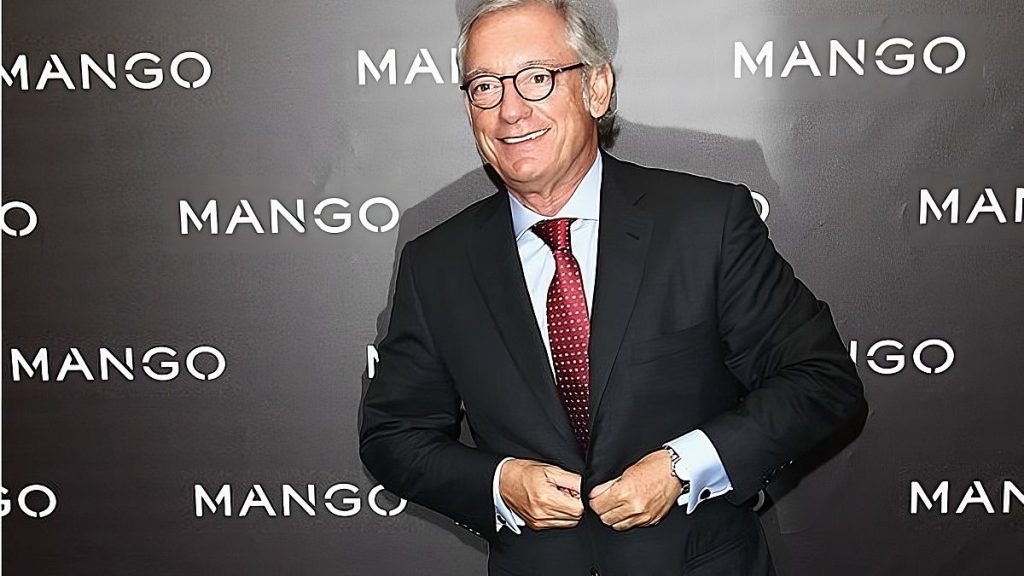Isak Andic, the visionary entrepreneur who transformed a modest clothing stall into the globally renowned fashion empire Mango, has tragically passed away at the age of 71. His sudden death, resulting from a hiking accident near Barcelona, has reverberated throughout the Spanish business community and beyond, leaving a void that will be difficult to fill. Andic’s journey, from a young immigrant selling clothes in flea markets to the helm of a multi-billion euro company, is a testament to his unwavering dedication, sharp business acumen, and unwavering pursuit of his vision. His legacy extends far beyond the realm of fashion, encompassing philanthropy, cultural patronage, and a profound impact on Spain’s economic landscape.
Born in Istanbul to a Sephardic Jewish family, Andic arrived in Catalonia at the age of 14. He quickly immersed himself in the world of commerce, demonstrating an innate talent for understanding consumer desires and market trends. Starting with a humble stall selling clothing and footwear in local markets, he steadily built his business, eventually opening his first Mango store on Barcelona’s prestigious Paseo de Gracia in 1984. This marked the beginning of Mango’s meteoric rise, transforming from a local boutique into an international fashion powerhouse with over 2,700 stores in more than 115 markets worldwide. Andic’s strategic leadership and keen understanding of global trends propelled Mango’s expansion, making it a household name synonymous with affordable, trendy clothing.
Andic’s business acumen extended beyond simply building a successful brand. He possessed a remarkable ability to anticipate market shifts, adapting his strategies to maintain Mango’s competitive edge in the ever-evolving fashion industry. He understood the importance of embracing new technologies and expanding into online retail, allowing Mango to reach a broader customer base and solidify its position as a global fashion leader. His commitment to quality, design, and affordability resonated with consumers worldwide, contributing to Mango’s continued growth and success. Furthermore, his deep understanding of international markets allowed him to tailor Mango’s offerings to diverse consumer preferences, ensuring the brand’s appeal across different cultures and styles.
Beyond his entrepreneurial achievements, Andic was a prominent figure in the Spanish business community, contributing his expertise and insights to various organizations. He served as president of the Family Business Institute, providing guidance and support to family-owned businesses across the country. He also held positions on international advisory boards, sharing his knowledge and experience with a wider audience. His active involvement in these roles underscored his commitment to fostering entrepreneurship and promoting best practices within the business community. He recognized the importance of collaboration and knowledge sharing, actively contributing to the growth and development of the broader business ecosystem.
Andic’s influence also extended into the cultural sphere, demonstrating his commitment to preserving and promoting art and heritage. He served as a trustee of prestigious institutions such as the Prado Museum and the National Art Museum of Catalonia, supporting their missions to preserve and showcase Spain’s rich artistic heritage. His philanthropic endeavors reflected a deep appreciation for the arts and a belief in their power to enrich society. His contributions to these institutions helped ensure their continued vitality and accessibility to the public, further solidifying his legacy as a patron of the arts.
The outpouring of grief and tributes following Andic’s passing highlight the profound impact he had on the Spanish business world and beyond. Political leaders, business executives, and cultural figures have expressed their condolences and praised his contributions to Spain’s economic and cultural landscape. Prime Minister Pedro Sánchez lauded Andic’s “great work and business vision,” emphasizing his role in shaping the Spanish fashion industry and creating jobs. Business leaders described him as a visionary entrepreneur and a driving force in the Spanish economy, while cultural figures acknowledged his commitment to preserving Spain’s artistic heritage. His legacy will undoubtedly inspire future generations of entrepreneurs and business leaders, serving as a testament to the power of vision, perseverance, and a deep commitment to one’s craft. Mango’s continued success, even in the face of this tragic loss, is a testament to the strong foundation Andic built and the enduring values he instilled within the company.










